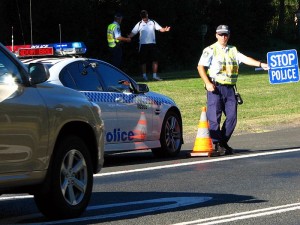Seattle DUI Attorney Discusses Investigative Traffic Stops
 A typical DUI case commences when an officer conducts a roadside traffic stop of a vehicle. The stop may be based on an officer’s belief that the driver is intoxicated or a traffic violation which then leads to further evidence of the driver’s intoxication.
A typical DUI case commences when an officer conducts a roadside traffic stop of a vehicle. The stop may be based on an officer’s belief that the driver is intoxicated or a traffic violation which then leads to further evidence of the driver’s intoxication.
The officer may not conduct a random stop, but must observe a traffic violation or something which indicates possible criminal activity to justify a stop. There is a general standard in American criminal law which is provided in a seminal criminal case, Terry v. Ohio, 392 U.S. 1 (1968), where the United States Supreme Court held that an officer may conduct a brief stop or detention of a person based on a reasonable suspicion consisting of specific and articulable facts that the person detained is involved in criminal activity. A roadside traffic stop in DUI cases is essentially a “terry stop”. See Berkemer v. McCarty, 468 U.S. 420 (1984).
Like the rest of the nation, a roadside traffic stop in Washington State must also be based on an officer’s observation of a traffic violation or suspected criminal activity. A situation often encountered in DUI cases is a tip from an informant about observing an alleged intoxicated driver. In such situations, the question arises of whether the tip provides a police officer with sufficient evidence to stop a suspected drunk driver. In Campbell v. Department of Licensing, 31 Wash. App 833, the Washington State Court of Appeals, Division 1, held that “…where, as here, an informant’s uncorroborated tip constitutes the sole justification for the officer’s initial detention of the suspect, the tip must possess an ‘indicia of reliability’”.
So what constitutes a reliable tip? In the Campbell case, based on the informant’s tip, the officer managed to find and follow the suspected vehicle which he eventually stopped even though he never observed any traffic violation or any behavior indicative of driving under the influence of alcohol or drugs. While ensuring the safety of the public was considered an important factor, the court in Campbell held that the officer could not stop a driver on an uncorroborated tip where the officer’s own independent observation of the driver did not find any evidence that the driver may be intoxicated. To conduct a roadside traffic stop of a suspected DUI driver based on an informant’s tip, the officer must be able to corroborate the tip through his or her own observation.
Another method by which more intoxicated drivers could be stopped and apprehended is through DUI sobriety checkpoints or roadblocks. Interestingly, while DUI laws in Washington are becoming much tougher, the state is among a minority of states which prohibits such roadside stops. In Seattle v. Mesiani, 110 Wn.2d 454 (1988), the Washington State Supreme Court held that sobriety checkpoints by the Seattle Police Department were illegal because they violated a individual’s rights under both the Fourth Amendment of the United States Constitution and Article 1, Section 7 of the Washington State constitution to not be disturbed in their private affairs. However, there are indications that Washington State could soon join the majority of states which have some form of a sobriety checkpoints. For now, if your vehicle is stopped in Washington State it will either be due to the officer’s belief that you are intoxicated or have committed a traffic violation which itself can also serve as a pretext to stop you because the officer believes that you may be driving under the influence of alcohol or drugs.
So remember, if you are ever stopped by a police officer for DUI do not assume that the officer can do so just on a whim. If you are stopped and charged with DUI, the first step in the legal analysis of your case is to access whether the officer had reasonable grounds to believe that you were either intoxicated or had committed a traffic violation. If the officer is unable to provide a justifiable reason to stop you then you will have the opportunity to have the DUI charges against you dismissed.
